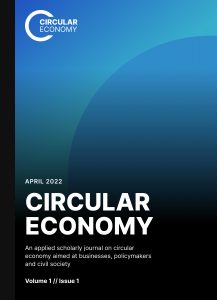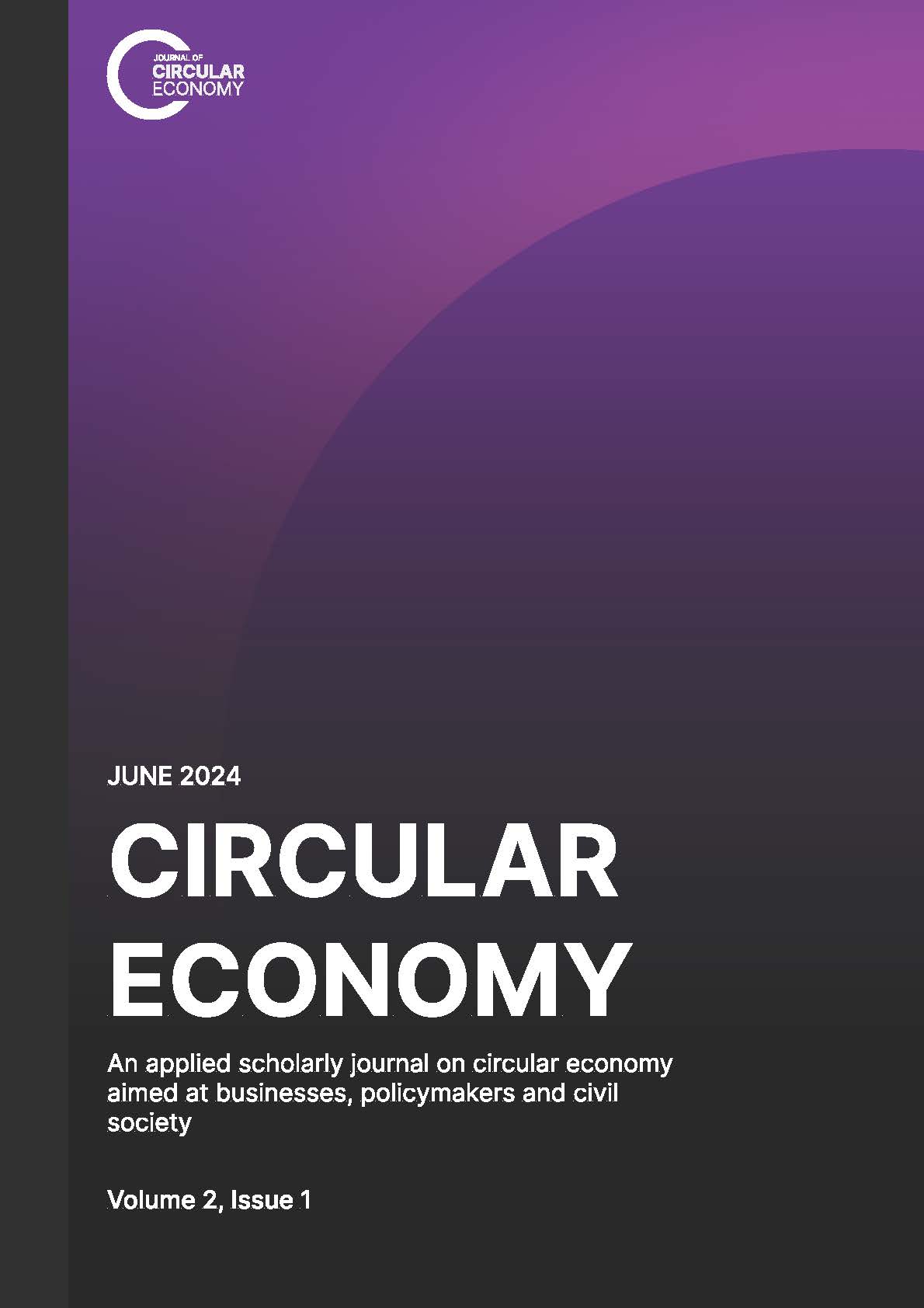Abstract
Keywords
References
Adams, R., S. Martin & K. Boom (2018). University culture and sustainability: Designing and implementing an enabling framework. Journal of Cleaner Production, 171, 434-445.
AdvanceHE & QAA. (2021). Education for Sustainable: Development Guidance. https://www.advance-he.ac.uk/knowledge-hub/education-sustainable-development-guidance.
Álvarez-García, O. & J. Sureda-Negre (2023) Greenwashing and education: An evidence-based approach. The Journal of Environmental Education, 54, 265-277.
Atici, K. B., G. Yasayacak, Y. Yildiz & A. Ulucan (2021.) Green University and academic performance: An empirical study on UI GreenMetric and World University Rankings. Journal of Cleaner Production, 291, 125289., https://doi.org/10.1016/j.jclepro.2020.125289.
Bakos, N. & R. Schiano-Phan (2021). Bioclimatic and regenerative design guidelines for a circular university campus in India. Sustainability, 13, 8238., https://doi.org/10.3390/su13158238.
Budihardjo, M. A., B. S. Ramadan, S. A. Putri, I. F. S. Wahyuningrum & F. I. Muhammad (2021.) Towards sustainability in higher-education institutions: analysis of contributing factors and appropriate strategies. Sustainability, 13, 6562., https://doi.org/10.3390/su13126562.
Capstick, S., A. Thierry, E. Cox, O. Berglund, S. Westlake & J. K. Steinberger (2022). Civil disobedience by scientists helps press for urgent climate action. Nature Climate Change, 12, 773-774.
Hoyer, D., J. S. Bennett, J. Reddish, S. Holder, R. Howard, M. Benam, J. Levine, F. Ludlow, G. Feinman, & P. Turchin (2023). Navigating polycrisis: long-run socio-cultural factors shape response to changing climate. Philosophical Transactions of the Royal Society B 378, no. 1889, https://doi.org/10.1098/rstb.2022.0402.
Ellen Macarthur Foundation. (no date). Profiled Universities. https://ellenmacarthurfoundation.org/resources/education-and-learning/profiled-universities
Evans, J., R. Jones, A. Karvonen, L. Millard & J. Wendler (2015). Living labs and co-production: university campuses as platforms for sustainability science. Current Opinion in Environmental Sustainability, 16, 1-6.
Fernández, M., G. R. Cebrián, E. & M. Y. Fernández (2020). Analysing the relationship between university students’ ecological footprint and their connection with nature and pro-environmental attitude. International Journal of Environmental Research and Public Health,, 17, 8826, https://doi.org/10.3390/ijerph17238826.
Fitch-Roy, O., Benson, D., & Monciardini, D. (2020). Going around in circles? Conceptual recycling, patching and policy layering in the EU circular economy package. Environmental Politics, 29(6), 983-1003.
Gardner, C. J., A. Thierry, W. Rowlandson & J. K. Steinberger (2021). From publications to public actions: the role of universities in facilitating academic advocacy and activism in the climate and ecological emergency. Frontiers in Sustainability, 2, 42, https://doi.org/10.3389/frsus.2021.679019.
Gillani, D. (2021). Can and “should” Qualitative Research Be Value-Free? Understanding the Epistemological Tussle between Positivists and Interpretivists. Journal of Political Studies, 28(1), 181-192.
Graziano, V. & K. Trogal (2017). The politics of collective repair: examining object-relations in a postwork society. Cultural Studies, 31, 634-658.
Hobson, K. (2020) ‘Small stories of closing loops’: social circularity and the everyday circular economy. Climatic Change, 163, 99-116.
—. 2022. The limits of the loops: critical environmental politics and the Circular Economy. In Trajectories in Environmental Politics, 158-176. Routledge.
Hobson, K., Lynch, N., Lilley, D., & Smalley, G. (2018). Systems of practice and the Circular Economy: Transforming mobile phone product service systems. Environmental Innovation and Societal Transitions, 26, 147-157.
Holmes, H. (2018). New spaces, ordinary practices: Circulating and sharing within diverse economies of provisioning. Geoforum, 88, 138-147.
Hopff, B., S. Nijhuis & L. A. Verhoef (2019). New dimensions for circularity on campus—Framework for the application of circular principles in campus development. Sustainability, 11, 627, https://doi.org/10.3390/su11030627.
Huckle, J. & A. E. Wals (2015). The UN Decade of Education for Sustainable Development: business as usual in the end. Environmental Education Research, 21, 491-505.
Jenkins, R., M. Molesworth & R. Scullion (2014). The messy social lives of objects: Inter‐personal borrowing and the ambiguity of possession and ownership. Journal of Consumer Behaviour, 13, 131-139.
Johansson, N. & M. Henriksson (2020). Circular economy running in circles? A discourse analysis of shifts in ideas of circularity in Swedish environmental policy. Sustainable Production and Consumption, 23, 148-156.
Jones, M. W., J. T. Abatzoglou, S. Veraverbeke, N. Andela, G. Lasslop, M. Forkel, A. J. Smith, C. Burton, R. A. Betts & G. R. van der Werf (2022). Global and regional trends and drivers of fire under climate change. Reviews of Geophysics, 60, https://doi.org/10.1029/2020RG000726.
Kaufmann, N., C. Sanders & J. Wortmann (2019.) Building new foundations: the future of education from a degrowth perspective. Sustainability Science, 14, 931-941.
Kountouris, Y. & K. Remoundou (2023). Does higher education affect pro-environmental behavior? Evidence from household waste recycling in Greece. Environmental Research Letters, DOI 10.1088/1748-9326/ace19a.
Kumdokrub, T., S. Carson & F. You (2023.) Cornell university campus metabolism and circular economy using a living laboratory approach to study major resource and material flows. Journal of Cleaner Production, 421, 138469, https://doi.org/10.1016/j.jclepro.2023.138469.
Lane, R. (2023). Inputs, outputs and churn: why some products and materials don’t move through. Journal of Cultural Economy, 16, 615-621.
Lane, R. & M. Watson (2012). Stewardship of things: The radical potential of product stewardship for re-framing responsibilities and relationships to products and materials. Geoforum, 43, 1254-1265.
Latter, B., C. Demski & S. Capstick (2024). Wanting to be part of change but feeling overworked and disempowered: Researchers’ perceptions of climate action in UK universities. PLOS Climate, 3(1): e0000322. https://doi.org/10.1371/journal.pclm.0000322.
McGeown, C. & J. Barry (2023). Agents of (un) sustainability: democratising universities for the planetary crisis. Frontiers in Sustainability, 4, 1166642, https://doi.org/10.3389/frsus.2023.1166642.
McLaren, D., J. Niskanen & J. Anshelm (2020). Reconfiguring repair: Contested politics and values of repair challenge instrumental discourses found in circular economies literature. Resources, Conservation & Recycling, 8, 100046, https://doi.org/10.1016/j.rcrx.2020.100046.
Mendoza, J. M. F., A. Gallego-Schmid & A. Azapagic (2019). A methodological framework for the implementation of circular economy thinking in higher education institutions: Towards sustainable campus management. Journal of cleaner production, 226, 831-844.
Hobson, K. & O’Byrne, M. (no date). Sharing and repairing at University: student practices, and the future of the circular campus. Submitted to Circular Economy and Sustainability (currently out to review).
Nussey, C., A. A. Frediani, R. Lagi, J. Mazutti & J. Nyerere (2022). Building university capabilities to respond to climate change through participatory action research: towards a comparative analytical framework. Journal of Human Development and Capabilities, 23, 95-115.
People and Planet. (2024). How sustainable is your university? https://peopleandplanet.org/university-league
Pidgeon, N., & Henwood, K. (2004). Grounded theory. In (Eds.) A. Bryman and MA Hardy. Handbook of data analysis, 625-648. Sage Publications.
Purcell, W. M., H. Henriksen & J. D. Spengler (2019). Universities as the engine of transformational sustainability toward delivering the sustainable development goals:“Living labs” for sustainability. International Journal of Sustainability in Higher Education, 20, 1343-1357.
Richardson, K., W. Steffen, W. Lucht, J. Bendtsen, S. E. Cornell, J. F. Donges, M. Drüke, I. Fetzer, G. Bala & W. von Bloh (2023). Earth beyond six of nine planetary boundaries. Science Advances, 9, DOI: 10.1126/sciadv.adh2458.
Salvador, E. (2021). Spin‐off–Research Spin‐off: How the University Fosters Innovative Entrepreneurship. Innovation Economics, Engineering and Management Handbook 2: Special Themes, 255-262.
Scuotto, V., M. Del Giudice, A. Garcia-Perez, B. Orlando & F. Ciampi (2020). A spill over effect of entrepreneurial orientation on technological innovativeness: an outlook of universities and research based spin offs. The Journal of Technology Transfer, 45, 1634-1654.
Selby, D. & F. Kagawa (2010). Runaway climate change as challenge to the ‘closing circle’of education for sustainable development. Journal of Education for Sustainable Development, 4, 37-50.
Serrano-Bedia, A.-M. & M. Perez-Perez (2022.) Transition towards a circular economy: A review of the role of higher education as a key supporting stakeholder in Web of Science. Sustainable Production and Consumption, 31, 82-96.
Sijtsema, S. J., Snoek, H. M., Van Haaster-de Winter, M. A., & Dagevos, H. (2019). Let’s talk about circular economy: A qualitative exploration of consumer perceptions. Sustainability, 12(1), 286, https://doi.org/10.3390/su12010286.
Steen, K. & E. van Bueren. (2017). Urban Living Labs: A Living Lab Way of Working. Amsterdam, Institute for Advanced Metropolitan Solutions Delft University of Technology.
Steffen, W., W. Broadgate, L. Deutsch, O. Gaffney & C. Ludwig (2015). The trajectory of the Anthropocene: the great acceleration. The Anthropocene Review, 2, 81-98.
Sugiarto, A., C.-W. Lee & A. D. Huruta (2022.) A systematic review of the sustainable campus concept. Behavioral Sciences, 12(5), 130; https://doi.org/10.3390/bs12050130.
Teather, A. & J. Etterson (2023). Value-action gaps between sustainability behaviors, knowledge, attitudes and engagement in campus and curricular activities within a cohort of Gen Z university students. Journal of Sustainability Education, 28, https://www.susted.com/wordpress/content/value-action-gaps-between-sustainability-behaviors-knowledge-attitudes-and-engagement-in-campus-and-curricular-activities-within-a-cohort-of-gen-z-university-students_2023_04/.
Thierry, A., L. Horn, P. Von Hellermann & C. J. Gardner (2023). “No research on a dead planet”: preserving the socio-ecological conditions for academia. Frontiers in Education, 8, 1237076, https://doi.org/10.3389/feduc.2023.1237076.
Times Higher Education. (2021). The race to Net Zero: how global are univiersities performing. https://www.timeshighereducation.com/digital-editions/race-net-zero-how-global-universities-are-performing.
UCL. (2022). UCL ranked in top 10 in UK university ‘green’ league. https://www.ucl.ac.uk/news/2022/dec/ucl-ranked-top-10-uk-university-green-league.
Urai, A. E. & C. Kelly (2023). Rethinking academia in a time of climate crisis. ELife, 12, https://doi.org/10.7554/eLife.84991.
Vergani, F. (2024). Higher education institutions as a microcosm of the circular economy. Journal of Cleaner Production, 140592, https://doi.org/10.1016/j.jclepro.2024.140592.
Verhoef, L. A., M. Bossert, J. Newman, F. Ferraz, Z. P. Robinson, Y. Agarwala, P. J. Wolff, P. Jiranek & C. Hellinga (2020). Towards a learning system for university campuses as living labs for sustainability. Universities as living labs for sustainable development: Supporting the implementation of the Sustainable Development Goals, 135-149.
Wassénius, E., A. C. Bunge, M. K. Scheuermann, K. Resare Sahlin, A. Pranindita, M. Ohlsson, A. Blandon, C. Singh, K. Malmcrona Friberg & P. Villarrubia-Gómez (2023). Creative destruction in academia: a time to reimagine practices in alignment with sustainability values. Sustainability Science, 18, 2769–2775.
Zink, T. & R. Geyer (2017) Circular Economy Rebound. Journal of Industrial Ecology, 21, 593-602.


